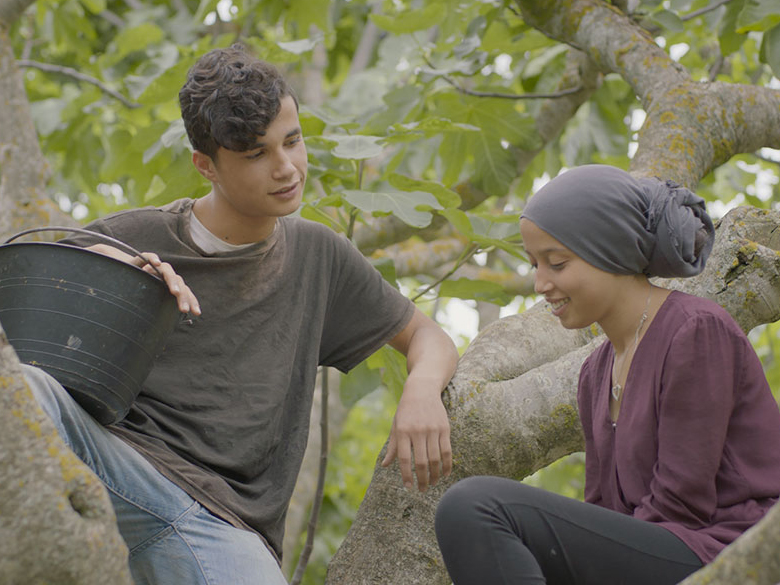
- Golden Globe Awards
Under the Fig Trees (Tunisia)
Love, friendship and work – those are the things that matter for the women of rural Tunisia who work in the fields harvesting figs during the summer.
Up before dawn, a group of young workers joins a crew of veteran farmers in the orchards where they will spend the day harvesting and packaging figs to be transported to the market. And it is there, among the branches and leaves of the fig trees, that the women’s conversations (together with those of some of the men) reveal the innocence of a possible first love, hopes and dreams for the future, and even the rivalry and jealousy that occasionally arise among them, but soon dissipate, because their friendship is more important to them than anything else.
Under the Fig Trees tells the story of a day’s work in the fields of what are known in Tunisia as “the women of the truck,” who travel in the vehicle standing up, with hardly any space between them, to the fields where they spend the day picking fruit. For these young female workers, the long working hours are a way to support their families, to spend time together and to enjoy a break from the monotony of rural life.
This is the second film fromTunisian director Erige Sehiri, who cut her teeth making the award-winning documentary Railway Men, in which she revealed the dark side of life for railway workers in Tunisia. This time, Sehiri goes into the trees, between their branches and their leaves, to capture not only the vulnerability and the sensuality of these young women but also their energy and strength, as symbolized in the figs they pick.
Under the Fig Trees is a portrait of the youth of the area where Sehiri comes from. She hired young locals to capture their own distinctive way of being and bring it to the cinema, where it has rarely been depicted, in an attempt to reclaim it in some way. “I have chosen to recreate a world that is rarely represented in cinema: that of the agricultural worker,” said the director at this year’s Marrakech International Film Festival. “
She explained that her determination to work with non-professional actors drove the film´s guiding principle: to tell the story of a single work day, from dawn to sunset. To do so, she used the orchard as the sole setting, as in a stage play, where everything happens, everything is said, and where the film subjects enter and leave the field.
“I hope to give my characters and their world the authenticity that I seek and that is absolutely essential to me. I have high hopes of making a film that will make a poetic contribution to Tunisian cinema,” the filmmaker concluded.